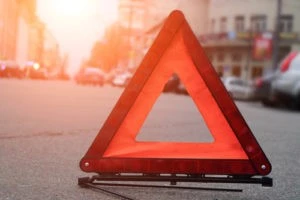
Yes, weather does affect liability for an accident in New York.
- Fault Does Not Always Matter in a New York Car Accident
- Exceptions to the No-Fault Rule in New York
- Negligence Is Measured by Reasonable Care, Which Changes with the Weather
- Failure to Take Proper Precautions for Bad Weather Can Also Be Negligent
- Types of Damages You Might Recover in a Weather-Related Accident
- Common Types of Weather-Related Accidents
- Call Friedman & Simon, L.L.P for Help with Your Weather-Related Accident
Fault Does Not Always Matter in a New York Car Accident
New York is a no-fault state. That means you typically turn to your own insurance after a car accident for certain items of damage. With respect to medical expenses and lost earnings, your insurance policy covers at least a certain portion of your losses regardless of who caused the accident. For example, even if another driver caused your accident because they were driving negligently, (for example, distracted by their cell phone or speeding), you would first turn to your own insurance as mentioned for medical expenses and lost earnings even though the other driver was at fault.
If you suffered severe injuries, the No-Fault Benefits under your policy might not cover your losses entirely. In this case, you would go after the other driver(s), the owner of the other car(s) in the accident and their insurance company.
For a free legal consultation, call 516-932-0400
Exceptions to the No-Fault Rule in New York
You may pursue a money recovery from the other parties, in addition to the No-Fault Benefits from your insurer, if you reach the No-Fault threshold. In simple terms, you must have suffered “serious” injuries. While we understand that anytime a person is hurt as a result of someone else’s carelessness it is “serious”, New York law classifies serious injuries with specific legal definitions:
- Death
- Dismemberment
- Significant disfigurement
- Loss of a fetus
- Permanent loss of use of a body organ, member, function or system
- Permanent consequential limitation of a body organ or member
- Significant limitation of use of a body function or system”
- An injury that prevents you from doing daily living activities for 90 out of the first 180 days following your accident
If you reach the no-fault threshold, you may recover damages beyond the benefits available under the No-Fault benefits of your (host vehicle) policy and proceed to take legal action against the at-fault party and their insurer to recover damages.
Negligence Is Measured by Reasonable Care, Which Changes with the Weather
When you aim to hold the other driver liable for your damages, you must prove that the driver failed to take “reasonable care” to prevent injury and harm to you, as a fellow driver on the road.
Reasonable care, in typical accident scenarios, can be partly determined by whether the other driver was following the rules of the road: driving the speed limit, yielding right of way, etc.
The same rules do not always apply so literally in a bad-weather situation.
For example, a driver might be going the speed limit, but if the roads are icy, or there is heavy rain, the speed limit is most likely faster than what is safe. Going this speed in such bad weather would more likely be a case of the at-fault driver failing to take reasonable care to protect other motorists from harm.
If their speed caused an accident, and you were injured as a result, the driver could be liable for your damages.
Click to contact our personal injury lawyers today
Failure to Take Proper Precautions for Bad Weather Can Also Be Negligent
A driver’s negligence in bad weather can stem from not only their driving, but also from the reasonable care they failed to take before even getting behind the wheel.
Inclement weather lends itself to taking a variety of precautionary measures, including the following:
- Making sure tires are properly inflated
- Keeping headlight covers clean
- Taking time to scrape ice off windshield
- Making sure accumulated snow is removed from the roof of the car, truck or van
- Installing snow tires
- Ensuring windshield wipers work
- Ensuring that there is adequate wiper fluid so that a safe visibility level is maintained
If the other (at-fault) driver failed to maintain their vehicle and this failure caused or contributed to the accident, such failure can form the basis of a negligence claim upon which the at-fault driver can be held liable for your injuries and related damages.
Complete a Free Case Evaluation form now
Types of Damages You Might Recover in a Weather-Related Accident
If the other driver in your bad weather car accident is liable for your damages, you may possibly receive compensation for some of the following types of damages:
- Lost wages
- Medical expenses
- Replacement services (housekeeping, lawn maintenance, childcare, etc.)
- Diminished earning capacity
- Diminished future potential earnings
- Future medical care costs for ongoing treatment
- Mental anguish
- Prescribed medicines
- Lost benefits
- Pain and suffering
- Diminished life enjoyment
Your car accident lawyer will use documentation from police and doctors, as well as medical experts, to calculate your total damages and present the total to the liable driver’s insurer.
If a weather-related accident in New York resulted in the death of your loved one, you might be able to pursue a wrongful death action. The lawyers at Friedman & Simon, L.L.P. are ready to pursue a wrongful death claim to win the compensation you are entitled to and the justice that your departed loved one deserves.
Common Types of Weather-Related Accidents
Weather-related accidents comprise 21 percent of the total number of vehicle crashes in the United States each year, according to the Department of Transportation’s Road Weather Management Program. These collisions can result from a slew of bad-weather conditions.
Based on data gathered over 10 years (2007-2016), the Department of Transportation reports the most common accident-triggering bad-weather conditions as follows:
- Wet pavement: 70 percent of vehicle crashes
- Rain: 46 percent of vehicle crashes
- Snow/sleet: 18 percent of vehicle crashes
- Icy pavement: 3 percent of vehicle crashes
- Snow/slushy pavement: 16 percent of vehicle crashes
- Fog: 3 percent of vehicle crashes
We have successfully represented clients injured in car accidents in every type of accident-triggering bad-weather. We are ready to help you with your weather related car insurance claims.
Call Friedman & Simon, L.L.P for Help with Your Weather-Related Accident
Our team of multilingual (Greek, Bengali, Spanish, English, Tamil, and Kannada) professionals will review your case at no charge. It costs you nothing upfront to hire a lawyer . We charge you no fees unless and until we have recovered your damages. Call Friedman & Simon, L.L.P. today at 516-932-0400.
Call or text 516-932-0400 or complete a Free Case Evaluation form
